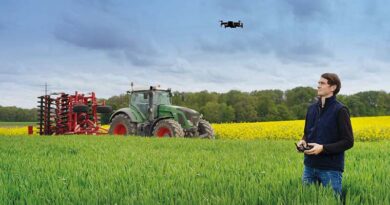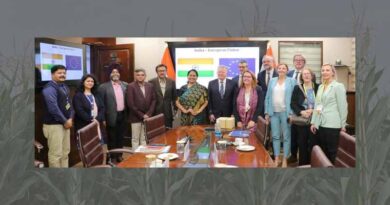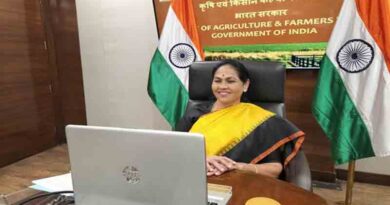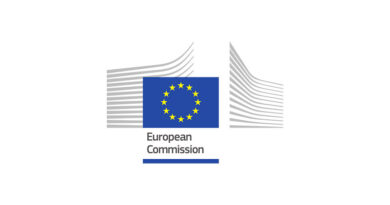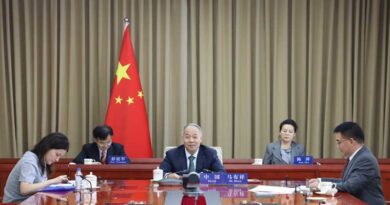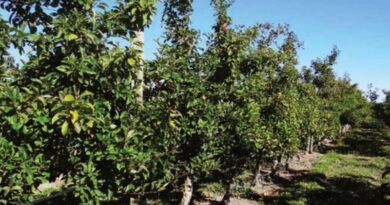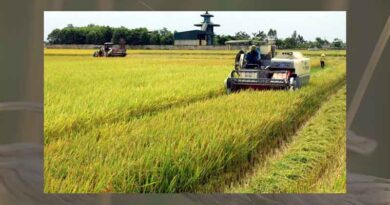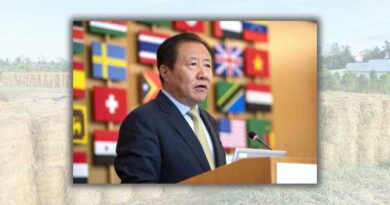EU ministers discuss how to apply new technologies for a more sustainable agriculture
08 September 2023, EU: The informal meeting of EU agriculture ministers in Cordoba focused on the use of new technologies to advance food security, combat climate change and achieve agricultural sector profitability.
The meeting, held as part of the Spanish presidency of the Council of the EU in the Palacio de Congresos of the Andalusian city, was chaired by Spain’s acting Minister for Agriculture and Fisheries, Luis Planas, and was attended by the European Commissioner, Janusz Wojciechowski.
EU industry leaders presented their ideas and proposals on which techniques and solutions they consider most effective and preferential in the fight against climate change, and for better food production.
“We will certainly refer to the Cordoba debate as a turning point,” Planas said after the meeting.
He stressed that “the supply of safe, nutritious food of sufficient quality and quantity is a global challenge for the whole planet” because, according to UN forecasts, the world’s population will reach 9.7 billion people by 2050.
The food security challenge
One of the main topics of the meeting was the response to a growing need: the food security challenge, which is one of the priorities set by the Spanish presidency for its six-month term.
The supply of safe, nutritious food of sufficient quality and quantity is a global challenge for the whole planet
Luis Planas: Spain’s acting Minister for Agriculture and Fisheries
The EU is the world’s largest food producer, and therefore has a responsibility to tackle the so-called “zero hunger” challenge set out in the UN’s 2030 Agenda for Sustainable Development goals.
The Russian invasion of Ukraine has distorted the supply chain and put a strain on global food production and the supply system.
The goal is to strike a balance between producing more and better food in terms of both quantity and quality, while preserving the environment and biodiversity.
Climate change, an urgent challenge
Another issue discussed at the informal meeting was the fight against climate change and its effects on the agri-food sector in the EU and globally. Rising temperatures and extreme events – especially droughts – are becoming increasingly common, and European decision-makers have discussed how to deal with these situations.
Finding solutions to challenges such as these involves looking for new technologies which, for instance, allow for better and more efficient use of water resources, with innovative techniques to deal with lower rainfall.
“It is my hope and desire that, through this global vision, we can reconcile food production and protecting the environment and biodiversity, without forgetting our main goal, which is obviously to provide decent pay for the work of our farmers and livestock breeders, and thereby ensure the future of our rural world,” Planas said.
Developments in New Genomic Techniques
However, the key topic in this regard discussed during the informal ministerial meeting was new genomic techniques (NTG), which make it possible to breed more resilient and resistant plant varieties quickly and with greater precision.
“Highlighted during the debate was the potential of new genomic techniques applied to the breeding of new plant varieties to meet the challenge of food production sustainability, and in particular, to tackle the challenge of climate change and the need to reduce the use of plant protection products and fertilisers,” the Spanish minister added.
New genome editing techniques are being supported, but with a responsible approach
Janusz Wojciechowski: European Agriculture Commissioner
On 5 July, the European Commission presented a proposal for a regulation on this issue.
European decision-makers have now had the chance to express their concerns, doubts and worries as part of a transparent debate to guarantee a production of both seeds and plants for food production in sufficient quantities. This is all without harming the environment and guaranteeing the future of the sector.
Ministers also emphasised their interest in ensuring transparency and information for consumers to achieve more sustainable technological solutions.
Commissioner Wojciechowski said he was “very satisfied” with the debate on the issue. “New genome editing techniques are being supported, but with a responsible approach,” said the EU official, who stressed the importance of “avoiding negative consequences” that could affect, for example, farmers using organic production methods.
The objective of the Spanish presidency is to reach some initial political conclusions on NTGs before the six-month period ends. In this regard, it has made a commitment to work intensively on the Commission’s proposal on plants obtained through these techniques.
Agricultural sustainability and profitability
The third topic debated was the situation facing rural workers because, according to Minister Planas, agricultural sustainability cannot be understood without considering farm profitability.
Part of the session was therefore devoted to discussing the options available and the need to increase agricultural productivity, so that the situation and livelihood of farmers and livestock breeders is not only maintained but improved.
In this line, during the working sessions, ministers also agreed on the need to make financial mechanisms available to farmers to invest in new technologies, and for training in their use.
In particular, the role of EU funds from the Horizon Europe programme and the measures detailed in the CAP strategic plans were discussed. This will triple the number of innovative projects in this period to help bring about the digital and innovative transformation.
Also Read: ADAMA launches 2 new CTPR-based products in India
(For Latest Agriculture News & Updates, follow Krishak Jagat on Google News)


